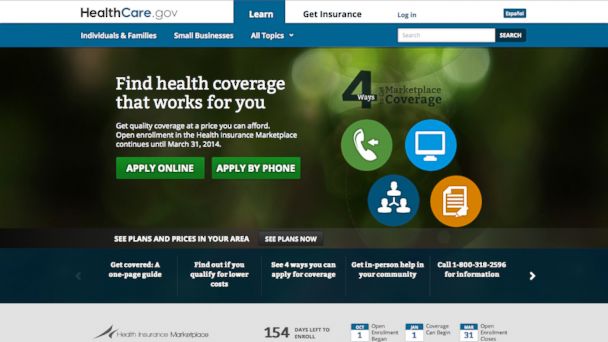Obama's Health Insurance Promise Easier Said Than Kept

(U.S. Department of Health and Human Services, File/AP Photo)
Allowing people to keep health insurance plans that have been canceled because of the Affordable Care Act is going to be easier said than done.
The solution President Obama proposed today involves allowing people who are enrolled in health care plans to keep them through 2014, if their insurance companies and state insurance commissions allow it.
Obama Announces Insured Can Keep Health Plans for a Year
Similar plans, albeit with some key differences, have been proposed by Republicans in the House and Democrats in the Senate.
The question remains, however, how does it work, and will it work?
Here are a few reasons that fixing Obama's "if you like your health insurance, you can keep it" problem has a bumpy road ahead:
The genie is already out of the bottle.
Insurance companies spent months retooling health care plans, calculating premiums, changing websites and informing consumers of new changes coming with the implementation of the Affordable Care Act in 2014. Now, proposals by both the president and lawmakers in Congress ask them to rollback those changes by January 2014.
"You've got to add in another two or three weeks for people to get the letter and decide whether they want to re-enroll," said Robert Laszewski, a health insurance industry consultant with Health Policy and Strategy Associates. "How you get these letters out, get the computer systems reprogrammed and give people time to make the decisions.
"How do you do that in a month?"
Insurance companies are left with a choice.
Obama's proposed solution is entirely voluntary for insurance companies. And given the potential difficulty of executing a reinstatement of cancelled plans, some might simply choose not to do it.
This is one of the key differences between what Obama has proposed and what Senate Democrats, led by Louisiana Sen. Mary Landrieu, has offered in her plan. That alternate proposal makes bringing back old policies mandatory for insurers.
Senate Democrats Digest Obamacare 'Fix' With Mixed Results
If Obama's proposed regulatory change stands alone, which some have suggested it cannot legally do, then consumers might not get their policies back because it's all left to the discretion of insurers.
Will premiums rise?
The threat of rising premiums, and in some cases higher deductibles and co-pays, in new ACA-compliant plans are one of the top reasons why the push to allow people to keep their old plans has gained steam.
But health insurance companies, through America's Health Insurance Plans, a trade group that represents them, say that the unintended consequence of making such a last-minute policy change could actually mean higher premiums.
Here's why: the cost of premiums in 2014 was calculated based on how young and healthy the pool of people buying insurance on the exchanges will be. Those assumptions will change now that many people will be allowed to keep their old insurance for another year, especially if more sick and old people sign up for insurance on the new health exchanges.
Five Signs Obama's Second Term Is In Serious Trouble
"Premiums have already been set for next year based on an assumption of when consumers will be transitioning to the new marketplace," trade group president and CEO Karen Ignagni said in a statement today. "If now fewer younger and healthier people choose to purchase coverage in the exchange, premiums will increase and there will be fewer choices for consumers."
Will states go along?
The federal government might have opened the door to allowing old plans to be offered again, but the ultimate decision falls to states, which decide which plans they will allow to be sold in their jurisdiction and how much insurance companies are allowed to charge.
It's unknown whether most or all states will allow older plans to be offered. And even if they do, there isn't much time left in 2013 to hammer out the details before people need new coverage Jan. 1, 2014.
"It depends on what the states would ultimately allow plans to do," said Robert Zirkelbach, a spokesman for America's Health Insurance Plans. "The process of getting new plans reviewed and approved by regulators would take months."
At least initially, state insurance commissioners have panned the proposal. In a statement today, the National Association of Insurance Commissioners echoed the concerns of insurance companies.
"This decision continues different rules for different policies and threatens to undermine the new market, and may lead to higher premiums and market disruptions in 2014 and beyond," it said.
What happens in 2014?
Everyone will have to transition to new plans that meet Obamacare standards by the end of 2014, according to President Obama's plan.
But, politically, even this change puts vulnerable Democrats in a bind.
The same premium jumps and cancellations that occurred this year and are being undone by the proposed administrative action will occur again next year.
That means any Democrat running for re-election might face the same political nightmare they face now, only a few months before the election.
The Senate Democratic plan that allows people to keep their old insurance lets them keep it indefinitely, and that's no accident.